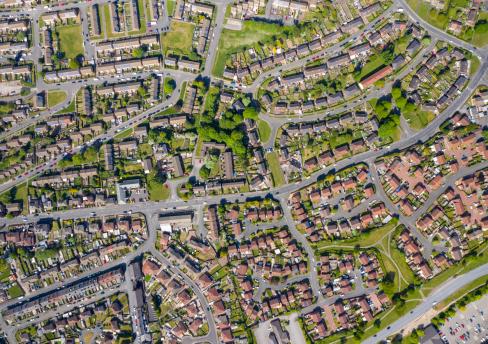The UK's first mobile phone call was made on 1 January 1985 by none other Ernie Wise! In the subsequent 28 years, the mobile phone has taken over - now 91% of adults in the UK own a mobile phone, and there are approximately 1.3 mobile phones per head of population. The revenues that the mobile operators make are substantial. For most people, the mobile phone has become a way of life and for many it has become indispensable.
Since 1985, we have seen the industry develop - 2G, 3G, and now 4G. Smart phones are no longer just for contacting your friends - you can access the internet, take photos, play music, pay your bills…. More and more people live in a house where their only means of communication is by mobile phone with no landline available.
So what does this mean for the network of mast sites around the countryside? Back in the 1980s, each mobile phone operator wanted to have their own site with their own kit and, as a result, 4 main networks of sites were established - each with its own mast, cabin and associated equipment. Over the years, changes to the planning laws meant that the operators were forced to consider sharing sites - to avoid a proliferation of masts sites. This resulted in operators entering into Site Sharing Agreements - where one operator would install their equipment on another operator's mast. The two sets of equipment continued to operate independently of each other and for landlords there was in many cases an added bonus to this arrangement, as they could negotiate to receive a percentage share of the rent passing between the operators (commonly known as a payaway).
Times have changed again, and the costs of obtaining firstly the 3G Licence and now 4G Licences, have taken their toll. One cost which has been targeted by the operators is the rent they pay to lease their mast sites. As a result, two joint ventures have been set up resulting in a major change to the structure of the networks. The first collaboration began in 2007 when T-Mobile and H3G entered into a joint venture to consolidate their networks, combining their equipment and infrastructure to operate a single network of sites, managed by the joint venture company Mobile Broadband Network Limited. This was shortly followed by a joint venture between T-Mobile and Orange - now called Everything Everywhere.
The second collaboration is between Vodafone and Telefonica who are currently working through their joint venture company, Cornerstone, to consolidate their networks. The net effect of these joint ventures is that there are now effectively 2, rather than 5, organisations operating planning and managing mobile phone sites across the UK.
What does this mean for landlords? In a nutshell, it means that there are fewer sites required by the operators because changes in technology now mean that one set of equipment can be used by more than one operator. The operators have been able to look at areas where there are two existing mast sites in close proximity, consolidate equipment on one site and remove equipment and decommission the second. During the T-Mobile/H3G consolidation, a substantial number of sites were decommissioned - the operators using break options to terminate the Leases or, in some cases, negotiating deals with landlords to terminate Agreements and leave their equipment on site. Another effect of consolidation has been that the operators have used the threat of decommissioning to seek rent reductions on a number of their sites, and all the operators have rent reduction programmes on-going.
For landowners hoping to attract (or retain) telecoms operators on their land, without a drop in revenue, it is not all doom and gloom. The advent of 4G technology, which promises faster services, may mean that the operators in fact require more sites to enable them to provide the service, so some experts in the field are forecasting some possible new site acquisitions.
Finally, a quick word on "Code Powers" - the rights granted to mobile operators to install equipment on land where agreement cannot be reached with the landowner. The current provisions have been a source of criticism for many years and were recently described by one Judge as "possibly one of the worst pieces of legislation on the Statute Book". The Powers are currently the subject of a law commission review which has got as far as report stage, but further developments are awaited. More of this in the future….
The content of this webpage is for information only and is not intended to be construed as legal advice and should not be treated as a substitute for specific advice. Morton Fraser LLP accepts no responsibility for the content of any third party website to which this webpage refers. Morton Fraser LLP is authorised and regulated by the Financial Conduct Authority.










